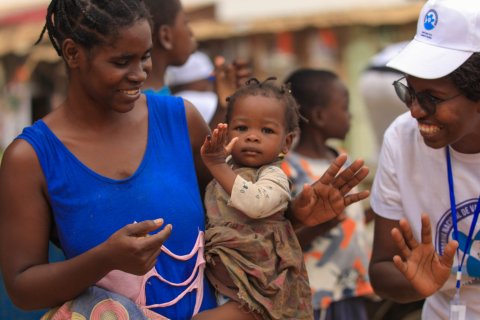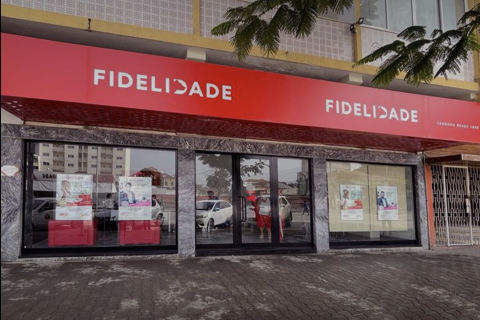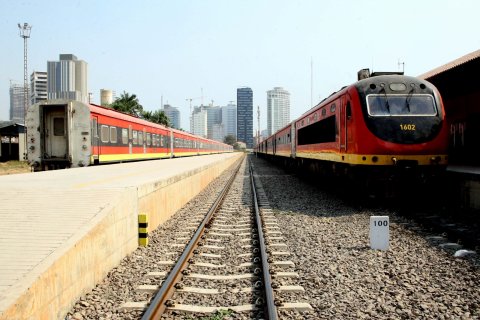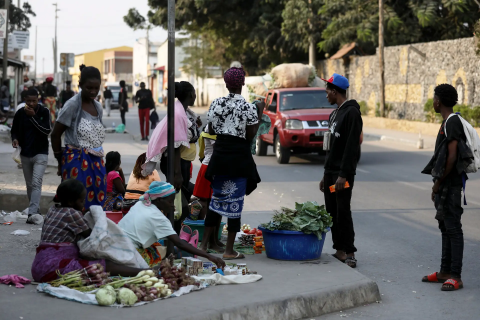In the bank's 2019 report and accounts, to which Lusa had access this Monday, it is stated that BIC-CV's profit, with a net profit for the year of 6.021 million euros (5.245 million euros in 2018), "increased essentially" due to "results in financial operations, due to the investment fund units in the portfolio".
The board of directors proposed the full appropriation of profits in retained earnings for 2020, without distribution of dividends, a practice adopted by all seven Cape Verdean banks operating with resident clients, as a preventive measure against the economic consequences of the covid-19 pandemic.
According to the bank's report and accounts, in 2018, BIC-CV held by Isabel dos Santos in Cape Verde had only 12 employees, a number that fell to 11 last year, in addition to two officers at the general meeting table, five members of the board of directors, three on the executive board and three members of the supervisory board.
BIC-CV is licensed under the International Financial Institutions Regime, "having as its main objective the execution of international financial operations with non residents of this state, in foreign currency", according to information from the institution itself.
BIC-CV is one of four banks operating in Cape Verde with restricted authorization, only for non-resident clients and therefore considered 'offshore', a regime that, by virtue of the legal amendment approved by the Cape Verdean parliament, ends at the end of this year.
For this reason, the BIC-CV administration admits transforming it into a commercial bank by the end of the year. "It is the intention of the board of directors of BIC-Bank and its shareholders to seriously analyze the possibility of expanding its activity in the country, through a local commercial bank with 'generic authorization' for the exercise of its activity, so we anticipate very soon a realization of this objective," reads the message of the chairman of the board, Fernando Teles, in the report and accounts.
In the text, Fernando Teles recalls that 2020 is "the year of the decision on the option to request its transformation into a bank with generic authorization and, in this way, to carry out financial operations also with residents", through the "formulation of a duly instructed request with the Bank of Cape Verde".
On February 21, the Cape Verdean parliament unanimously approved legislation that will lead to the closure, by 2021, of banks with restricted authorization that does not meet the new requirements, namely requesting the transformation into a generic authorization.
The Bank of Cape Verde (BCV) announced in January of this year that it will draw "the appropriate consequences" from the inspection of the BIC-CV bank, after information conveyed as part of the investigation by the International Research Journalism Consortium (ICIJ), a process known as 'Luanda Leaks', which indicates that the bank would allegedly be used by the entrepreneur in contracts of dubious provenance.
In the 2019 report and accounts, as "relevant facts occurring after the end of the financial year", the institution recalls that on January 19, 2020 "an investigation carried out by an international consortium of journalists into the business of Ms. Isabel dos Santos, a shareholder of BIC-CV bank, was made public.
"Following the news published, the Bank of Cape Verde conducted an inspection of the bank between 29 January and 12 March 2020. Until the date of approval of the accounts for 2019, the bank was not notified of the results," reads the report.
In the communiqué released after the journalistic investigation was made known, BCV added that "depending on the outcome of the case," it would draw "the appropriate consequences, particularly in terms of prudential and misdemeanour issues.
"BCV will continue to pay attention to information related to Banco BIC Cabo Verde, ICAR [Restricted Authorization Credit Institution], with a view to taking any necessary measures in due course," the statement said.
BIC-CV has been operating since 2013, when the Ministry of Finance authorized, "exceptionally," the acquisition by a group of private investors of the entire share capital of BPN - Banco Português de Negócios, IFI, through Executive Order 37/2013, of July 24. "As a result, the name of BPN, IFI was changed to Banco BIC Cape Verde, IFI, currently Banco BIC Cape Verde, ICAR," recalled the central bank.
According to information from BCV, Isabel dos Santos indirectly holds, through Santoro Financial Holdings, SGPS, SA and Finisantoro Holding Limited, 42.5 percent of the share capital of Banco BIC Cape Verde, although "not performing any function in the governing bodies of the institution".
The International Investigative Journalism Consortium (ICIJ) revealed in January more than 715,000 files, under the name of 'Luanda Leaks', detailing financial schemes of Isabel dos Santos and her husband, Sindika Dokolo, which will have allowed money to be taken from the Angolan public treasury, using tax havens.
Isabel dos Santos said she was a victim of an orchestrated political attack to neutralize her and argued that the allegations made against her are "completely unfounded," promising to "fight in international courts" to "restore the truth".







